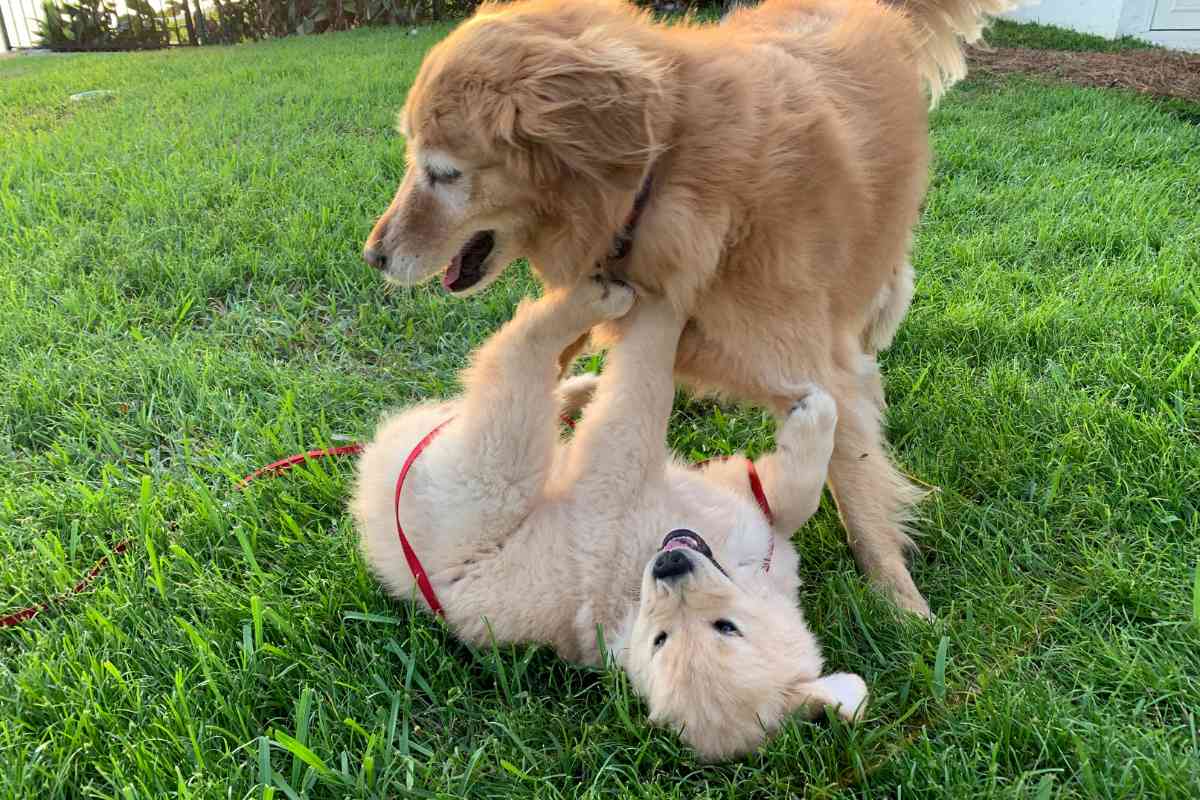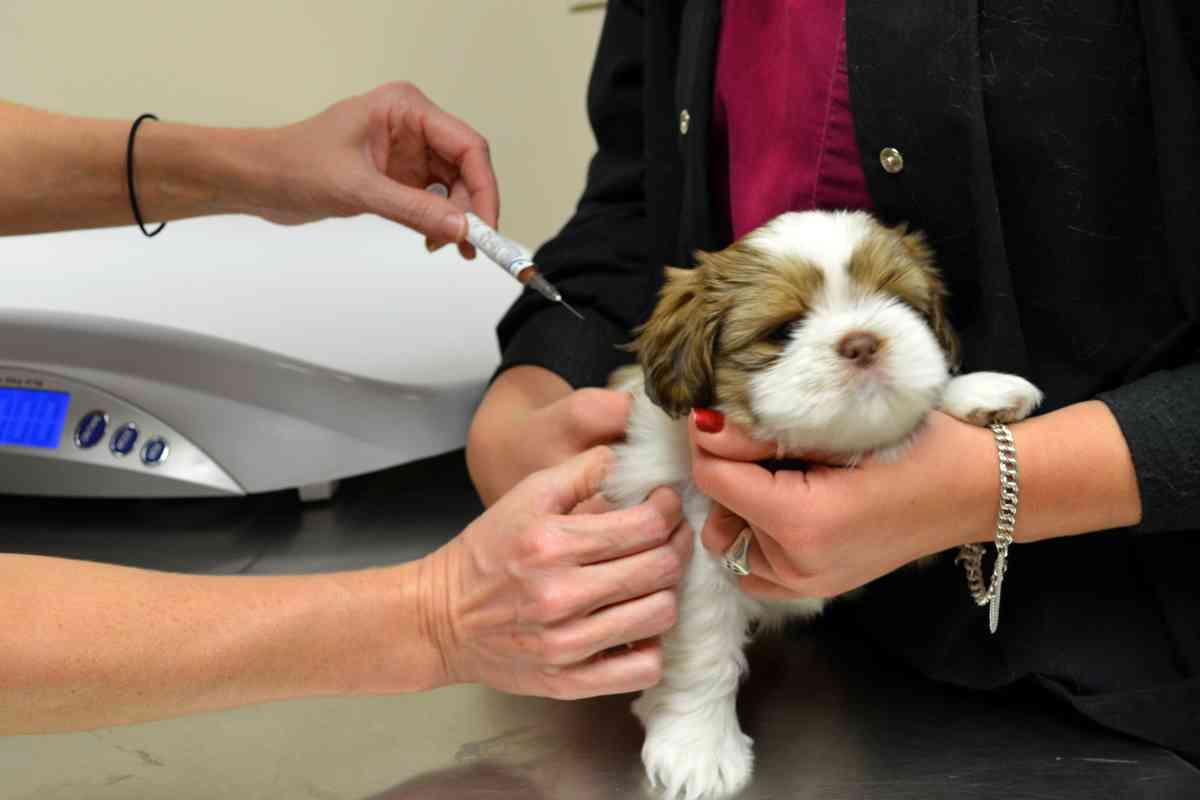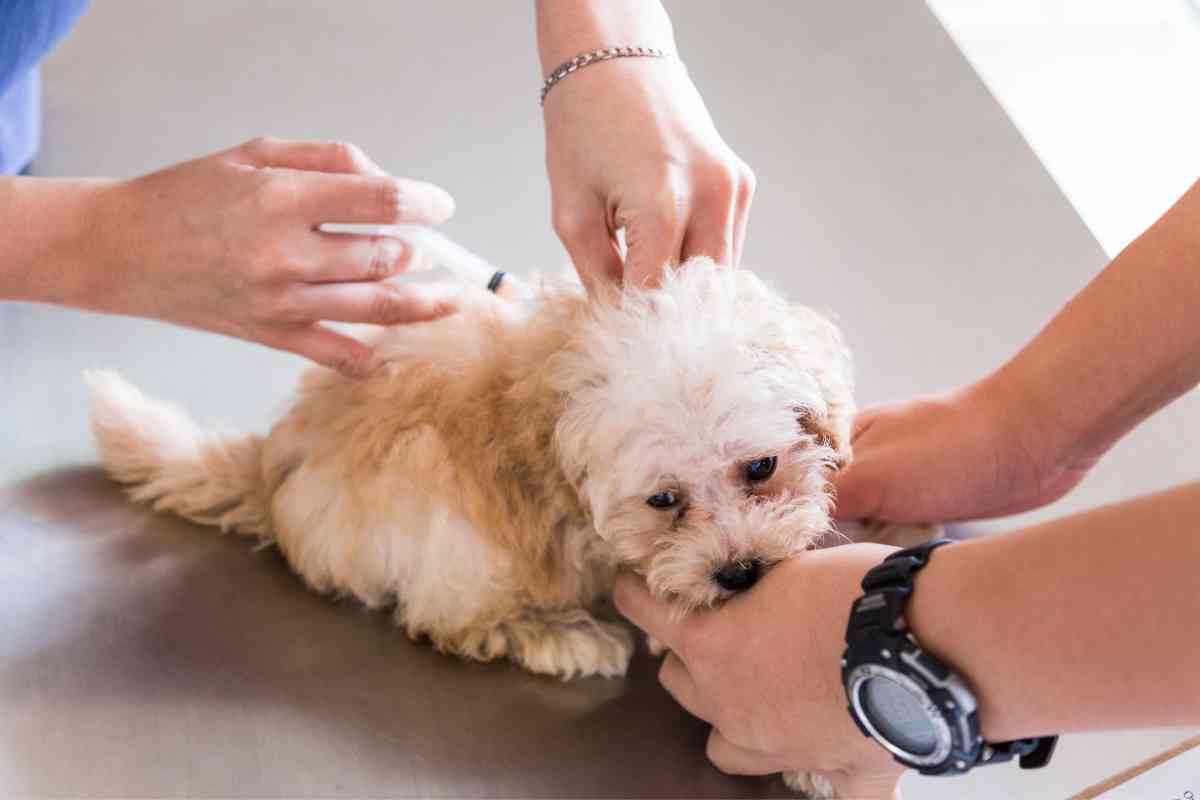Here’s When Puppies Can Be Around Other Dogs (Don’t Risk It!)
Bacteria and viruses can kill unvaccinated puppies, so it’s best to keep them separated from other dogs and away from places other dogs frequently go, like dog parks. However, it’s also important to socialize your puppy early. So the question is: when is it safe for your puppy to be around other dogs?

When is it safe for puppies to be around other dogs?
Your dog should not go to playgroups or dog parks until it is fully vaccinated. This can happen by 16 weeks if you get the dog shots early. After your dog is vaccinated, it should spend time around other dogs to get socialization.
I kept my puppy away from any dogs other than my other vaccinated dog during its early life. You don’t want to take risks with an unvaccinated dog.
Why is it Dangerous For Puppies to Be Around Other Dogs?
Puppies should not be around other dogs because they might get diseases. Bacteria and viruses are a big threat. An unvaccinated puppy could get a contagious disease that may require expensive treatment or kill the dog.
A dog needs vaccines for several of the most common illnesses, including more than one shot for some of them. It cannot safely get vaccines in early puppyhood.
This means that a dog is around 16 weeks old before it’s fully vaccinated. You usually cannot board a dog before around 16 weeks.
Don’t Take Risks With Unvaccinated Puppies

Again, bacteria and viruses can kill dogs. There are always many harmful to fatal diseases going around. Parvo is very dangerous for your dog, rabies is very dangerous for humans.
Get your puppy vaccinated as early as is safe for that vaccine. The longer your dog remains unvaccinated, the longer it remains in danger. Don’t cut any corners when your puppy is unvaccinated.
Keep Your Dog Away From Other Dogs
It is important for your dog to be around other dogs and to have new experiences. However, this should happen after the dog is fully vaccinated.
After sixteen weeks, there will still be lots of time left for your dog to learn to socialize and not fear unfamiliar situations.
Be Careful Which Dogs Enter Your Home
Letting other dogs into your home even though your dog is young, unvaccinated, and vulnerable is too risky. The virus could spread through direct contact.
It could also linger on the floor of your home and spread to your puppy.
Avoid Dog Parks and Play Groups
Dog parks and playgroups are too risky. There are a lot of dogs there, any of which may carry diseases.

Can Vaccinated and Unvaccinated Dogs Be Near Each Other?
Even if one of the two dogs is fully vaccinated, this is arguably still too risky. A disease might spread despite the vaccines. A vaccine does not make a dog completely immune to a disease or unable to spread it to other dogs.
A vet’s vaccines are effective and save dogs’ lives. However, some of the worst diseases, such as Parvo, can harm even a vaccinated puppy.
Puppies have weak immune systems, so you have to be very careful with them.
Another argument is that early socialization is so important that the dog should be around other dogs before full vaccination. Limiting contact to a low number of fully vaccinated dogs might be the right idea.
What is Parvo?
Parvovirus is one of the most dangerous diseases for dogs and puppies. It can kill a puppy in two or three days.
The virus can linger in the environment for up to a year. It can survive on people’s clothes and shoes, on the floor, or on plants. Thankfully, the Parvo vaccine is effective.
Other Diseases
Canine Hepatitis doesn’t kill a dog quickly, but it does sicken the dog and might kill it eventually. It inflames the liver (like in humans) plus the kidneys, eyes, spleen, and other organs.
Canine Parainfluenza
This is “the flu for dogs”, and while it won’t kill a dog, it is bad for the dog’s health and will make it feel awful. People usually vaccinate their dogs against it.
Rabies
Since rabies is so dangerous, you are legally required to vaccinate against it. The disease can still kill humans easily.
After the disease progresses past its early stages, it is too late to save a human. Anyone bitten by an animal should immediately seek treatment even if the animal did not appear to be rabid. Early treatment for rabies is effective.

Do Vaccines Have Side Effects?
Vaccine side effects are usually mild, but there is a chance of an allergic reaction. Your dog will usually act tired for a day or two and then go back to normal. There may be a slight fever.
If an allergic reaction occurs, the dog may vomit, have diarrhea, or breathe heavily. Get your dog to the vet right away.
If you are worried, keep your dog at the vet’s office for 20 minutes after the vaccine and see if the dog seems fine.
Are Vaccines Expensive?
No, vaccines are fairly cheap and only a small part of the cost of owning a dog. Health insurance is expensive, and surgery can be even more expensive if you don’t have insurance. Health insurance costs somewhere around five or six hundred a year.
When you have a puppy, you might spend two or three hundred on initial veterinary care. This includes examinations, flea control, deworming, and multiple vaccines.
Vaccine booster costs are much lower after the first year, somewhere around $75 per year or $75 every few years.
Key Takeaways
- You should at least keep your dog away from dog parks and playgroups for the first 16 weeks. Your puppy has to get vaccines on a schedule, so you can’t get them fully vaccinated before then. Start vaccinating your dogs on time to finish the process quickly.
- You might not want to isolate your dog too much because early socialization is good for your dog. You could try limiting contact to a small number of fully vaccinated dogs.
- Vaccinated dogs are less likely to spread bacteria and viruses. However, it is still possible, so at least limit contact between your puppy and other dogs.
- Vaccines are not expensive. However, treatments for diseases that vaccines treat often are. Vaccines are only a tiny part of the cost of owning a dog.